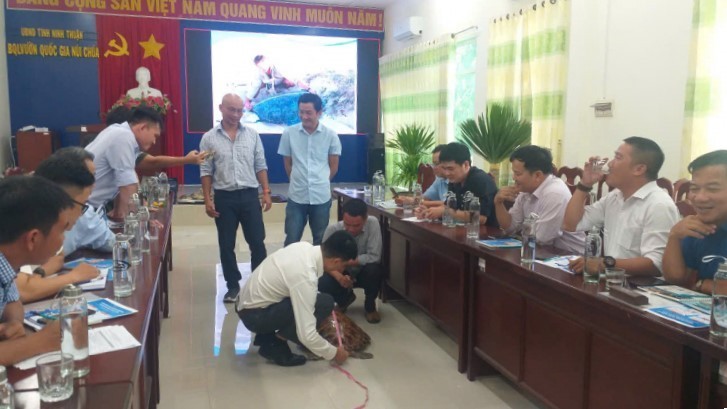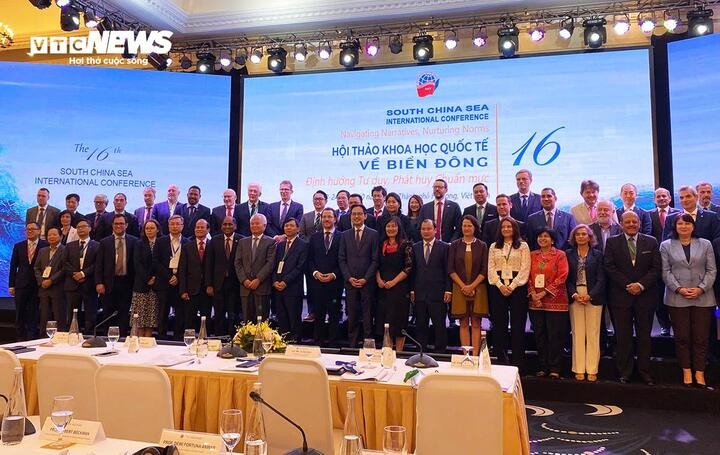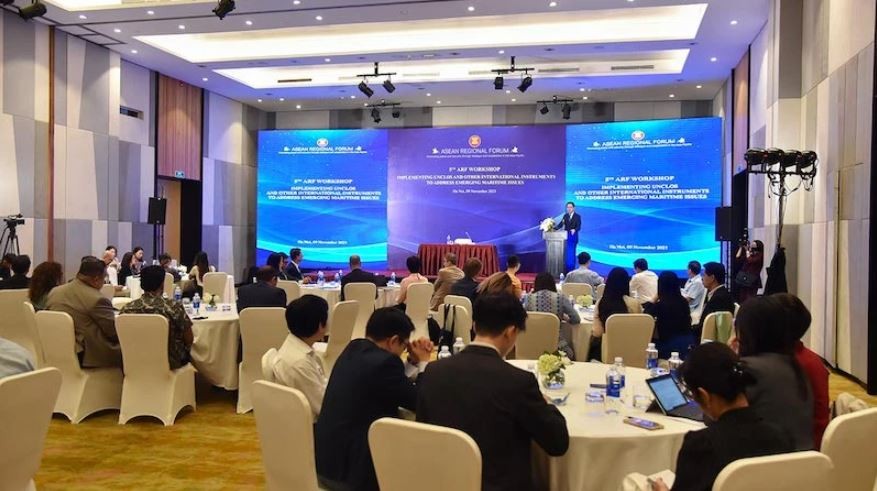Vietnam Endorses Common Voice on Ocean Jurisdiction
| Vietnam's Achievements In National Effort to Reduce Ocean Plastic Waste | |
| Vietnam Respect and Follow Cooperation on Seas and Ocean Issues Under UNCLOS |
How do you assess the contributions of the International Tribunal for the Law of the Sea (ITLOS) to strengthening the legal order at sea over the past three decades?
The 1982 United Nations Convention on the Law of the Sea (UNCLOS) came into force in 1994, and ITLOS was established shortly thereafter. Annex VI of the Convention outlines the mechanisms, role, and jurisdiction of ITLOS in resolving disputes concerning the interpretation and application of UNCLOS in practice.
 |
| Former Chief of the Government Border Committee, Tran Cong Truc (center), attends the 14th Maritime Dialogue on May 7. (Photo: Giang Hong) |
To date, ITLOS has handled more than 20 cases related to the interpretation and application of UNCLOS, including the examination and settlement of disputes and requests from member states.
In addition, ITLOS has reviewed legal submissions from the International Seabed Authority (ISA) and addressed issues relating to the common interests and shared heritage of humankind. In practice, the Tribunal has helped to bring the provisions of UNCLOS into effect, facilitating the resolution of maritime and ocean-related legal matters.
This is clearly demonstrated in the determination of maritime zones under national sovereignty, sovereign rights, and jurisdiction; the management of fisheries, environmental protection, and the exploitation of marine biological resources in international waters; and in the handling of issues related to seabed mining and the subsoil beyond national jurisdiction, which falls under ISA’s oversight. I believe these are significant advancements made by ITLOS.
However, limitations remain in the dispute settlement mechanism. First, the tribunal’s procedures only apply if all parties agree—especially in cases involving overlapping maritime zones. A case cannot be considered solely based on a unilateral submission.
Second, although ITLOS rulings are binding, enforcement remains a challenge, as there is no supervisory body to ensure compliance.
As such, while ITLOS has the authority to issue judgments, their implementation depends entirely on the willingness of the involved parties. If one party refuses to comply, there is no enforcement body to compel action. This is a key limitation that affects the tribunal’s authority and role.
In addition to ITLOS, how effective are other dispute resolution mechanisms in maintaining a peaceful and stable regional maritime environment?
Beyond ITLOS, the Permanent Court of Arbitration (PCA) and the International Court of Justice (ICJ) can also be involved in resolving maritime and ocean-related disputes.
In the South China Sea, there are two main types of legal disputes, those concerning sovereignty over islands and archipelagos, and those involving overlapping maritime claims. However, in my view, the jurisdiction and procedural mechanisms of these bodies remain limited. As a result, sovereignty and territorial acquisition issues remain highly sensitive under such mechanisms.
As a coastal state and an active member of UNCLOS, how can Vietnam contribute to enhancing the effectiveness of international dispute settlement mechanisms?
Vietnam was among the first countries to sign and ratify UNCLOS and has consistently demonstrated a high level of responsibility in its implementation. Vietnam’s consistent policy is to resolve maritime disputes—especially those in the South China Sea—through peaceful means, including bilateral and multilateral negotiations, as well as through international judicial bodies, reflecting its support for a rules-based international system.
However, the use of these adjudication mechanisms must align with the specific procedures and jurisdiction defined by UNCLOS. Not all disputes can be easily submitted to international tribunals. This requires Vietnam to carefully study and assess which cases are suitable and feasible.
 |
| The 14th Maritime Dialogue takes place on May 7 at the Sheraton Hotel in Hanoi. (Photo: Giang Hong) |
More importantly, through engagement with and study of international adjudication mechanisms—such as through thematic workshops—we should organize more academic forums to contribute ideas for improving their processes, mechanisms, and jurisdiction. This would help ensure that rulings are more practical and enforceable. If discussions remain at a political level without legal depth, the outcomes may fall short of expectations.
In addition, at today’s Dialogue, we sincerely appreciate and welcome the interest shown by countries such as Australia, India, and others in promoting a common voice to help maritime adjudication bodies function more effectively and meaningfully.
I believe these partner countries have made significant academic and theoretical contributions—efforts we should continue to learn from and build upon. Their engagement demonstrates a genuine commitment to establishing a stable legal environment, thereby contributing to peace both in the region and globally.
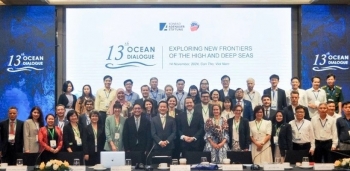 | At the 13th Ocean Dialogue in Can Tho City on November 14th, domestic and international experts delved deep into the implications of the BBNJ Agreement. ... |
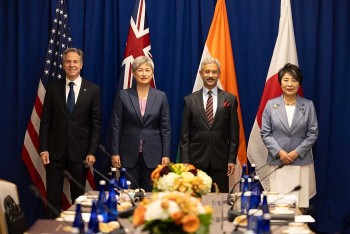 | QUAD: Changes in the balances in the Indo-Pacific Ocean Bring changes to global balances The diplomatic situation among the countries located in the Indo-Pacific Ocean and the shifting balances between them affect the global trade map with a direct ... |
Recommended
 Seas and islands
Seas and islands
Vietnam Endorses Common Voice on Ocean Jurisdiction
Popular article
 Seas and islands
Seas and islands
Dialogue as Key to Settling Disputes and Advancing Law of the Sea
 Seas and islands
Seas and islands
RoK Navy Ship Pays Friendly Visit to Da Nang City
 Seas and islands
Seas and islands
Naval Region 5 Promotes Reading Culture, Fosters Patriotism
 Seas and islands
Seas and islands





